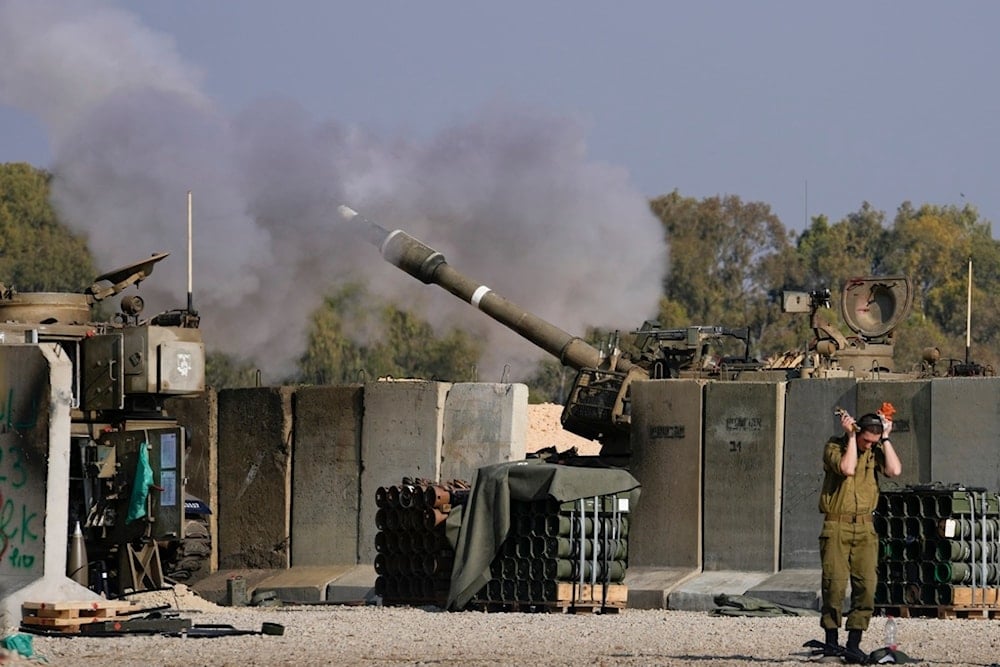'Israel' commits $150m to shape intl. perception amid Gaza genocide
Israeli Foreign Minister Gideon Sa’ar says, "Israeli propaganda efforts and the war of consciousness have not received the critical and life-saving resources and tools they require for decades."
-

An Israeli soldier covers his ears as an artillery gunner fires into the Gaza Strip from a position in southern occupied Palestine, Thursday, January 2, 2025. (AP)
"Israel" has approved an additional $150 million for its 2025 propaganda budget, aiming to influence international perceptions regarding its war on Gaza, the Middle East Monitor news website reported on Thursday.
The website pointed out that this significant 20-fold increase in funding is intended to reinforce Tel Aviv's narrative, presenting its war on the besieged enclave as justified, while framing the Palestinian Resistance as “anti-Semitic” and equating it to “Nazi” terrorism.
The Middle East Monitor added that the decision also seeks to amplify Islamophobic rhetoric in European nations by likening the Palestinian struggle to extremist groups like ISIS.
According to the news website, the broader objective of these efforts is to erode international sympathy for the Palestinian cause and bolster support for "Israel’s" crimes in Gaza.
Israeli Foreign Minister Gideon Sa’ar, addressing the expanded budget, stated that “Israeli propaganda efforts and the war of consciousness have not received the critical and life-saving resources and tools they require for decades.”
“I am determined to make a change. Every shekel allocated to this cause is an investment, not an expense, and it will strengthen Israel and its standing in the world,” he emphasized.
Key components of Israeli propaganda
Israeli propaganda, often referred to by critics as hasbara, involves efforts by the Israeli government, advocacy groups, and private organizations to shape perceptions of "Israel", its policies, and its actions globally. These campaigns aim to promote a favorable image of "Israel" and influence public opinion and policy decisions in other countries.
Among the key components of Israeli propaganda are responding to accusations regarding its treatment of Palestinians, military actions, or settlement policies by framing them as defensive measures against terrorism or existential threats.
Israeli propaganda portrays Palestinians or critics as biased, anti-Semitic, or aligned with extremist ideologies, and monitors and discreds organizations or individuals critical of "Israel’s" policies.
"Israel" employs social media campaigns to amplify pro-"Israel" narratives, often targeting young audiences, as well as training "digital warriors" or grassroots activists to advocate for "Israel" online and leveraging partnerships with influencers and celebrities to promote "Israel’s" image.
It also funds initiatives like trips for journalists, students, and politicians to "Israel" to grow sympathy for its perspective.
Critics warn that Israeli propaganda detracts attention from ongoing apartheid, occupation, and violence in Palestinian territories.

 3 Min Read
3 Min Read










